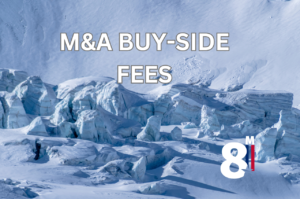Direct Deal Sourcing – TOP 5 target questions
We find companies ready to sell their shares for our clients. Active Deal Sourcing. Our first step after an assignment is always to record the search parameters and investment criteria of our clients.
In addition to the pure facts and figures, however, from our experience completely different things are important.
Many targets are approached almost daily by potential investors and M&A brokers.
Dear private equity entrepreneurs – this is unfortunately the case – you are usually not the only interested parties. 😉
Decisive for the willingness to negotiate or even to talk about a share/asset deal are the questions described here, which we encounter again and again and to which every company buyer should have an answer.
One thing I would like to say in advance: Money alone will not bring a target to the table.
1. How does the buyer make us better?
At first, this question sounds very trivial for a buyer. We experience from almost all our customers the answer that you can reduce costs and achieve synergies by centralizing services such as HR, controlling or marketing.
Of course, this makes a company better – in terms of EBIT, but EBIT is not that important for many targets. More crucial is the concept for growth and a sustainable strategy, which – and this is important – takes into account the involvement of the current management.
2. What is the buyer’s integration strategy?
We are always amazed that even large and well-known private equity firms fail to answer this question. Why? Because it is not enough to buy a company and add it to the portfolio. Nor is it enough to centralize services and put money in.
Rather, the entrepreneur who built his company wants his employees and his customers to be in good hands. He wants a clear process of what exactly happens after the closing and how to get the corporate cultures of the subsidiaries to match. If the buyer cannot give a clear answer here, the interest is usually gone.
3. What synergies can be leveraged?
It is not enough to build up a portfolio and operate all portfolio companies “loosely” side by side. The seller has usually been alone in the market until now and has built up the company alone.
Why should he then sell if nothing changes – except his account balance. And let’s be honest: Anyone who has successfully built up a company over decades may be interested in money as recognition of his performance, but the vision and the strategy are more interesting.
4. How is payment made?
Now, one could answer this question quite simply with “Dollars“, but that is of course too simple. 😉
The seller’s main concern here is to clarify in which modules or tranches the purchase price will be paid. At first glance, the buyer who transfers the purchase price in one tranche directly after closing has an advantage here. In practice, however, this is not the case at all.
Rather, many sellers are interested in a form of return participation. So what else can be earned after the closing? Sellers usually believe in their company and want to participate in future developments. Another small hint: After the closing, at least 60-70% of the purchase price should flow immediately as cash. Otherwise it will be difficult to keep the interest up.
5. When can I drop out as a vendor?
We live in a time of demographic change. Age successions are becoming more and more frequent and so the question now often arises as to how the buyer proceeds here. Is he able to replace the seller already after a small transition period or does the seller “have” to stay on board for a few more years (I am only talking about age-related sales here).
This is just a small excerpt from the questions we are asked in our daily Direct Deal practice. We try to define the answers already during the first briefing with the customer.
Feel free to contact us and make an appointment, then together we will clarify your needs and how we can help you grow.
click -> Schedule a call for free! <-





